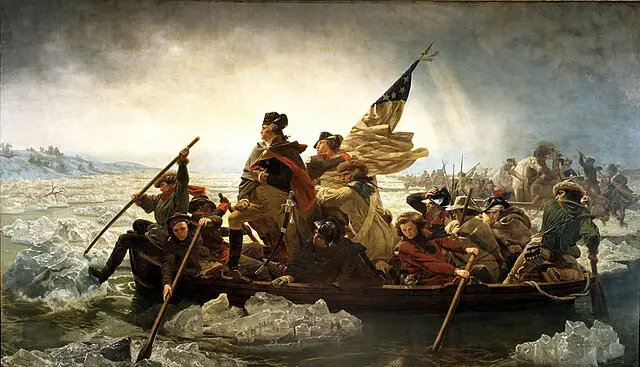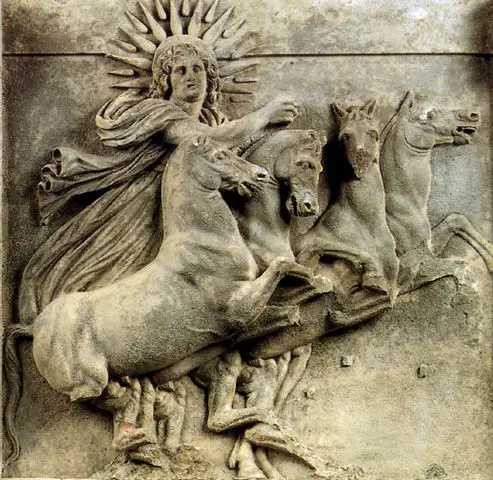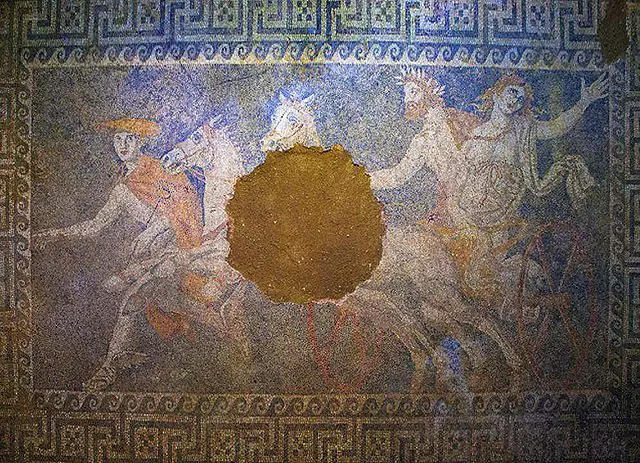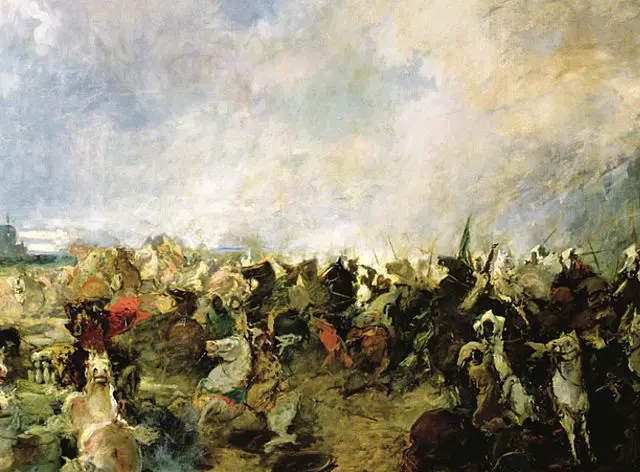
| Date | 25th-26th of July, 711 AD |
| Further Reading | The 3 Biggest Medieval Kingdoms In Europe |
In 711 AD an Umayyad invasionary force crossed the Strait of Gibraltar and entered Visigothic Spain. The Visigothic King and Ummayyad General fought for Spain at the Battle of Guadalete in 711 AD. There are 2 reasons why this battle forever changed history.
There are 2 ways that the Battle of Guadalete changed history. First, the Battle of Guadalete marked the creation of Al-Andalus and a transition of power over Spain to the Umayyad dynasty. Second, the battle marked the end of the Dark Ages in Spain.
Here at The History Ace, I strive to publish the best history articles on the internet. If at the end of this article you enjoyed it then feel free to share around the internet and subscribe to the newsletter.
Without further ado, here are the 2 ways that the Battle of Guadalete changed history.
Background of Battle: Visigothic Spain Split by Internal Struggle and Constantly Being Raided by Berber Forces 706-711 AD
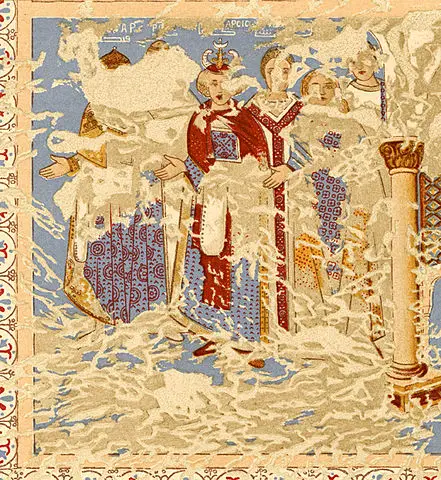
Before the Battle of Guadalete was even fought the kingdom of the Visigoths was already in the midst of or recovering from a civil war.
Much of what we know about the Visigothic kingdom between the years of 700-712 has not survived. We do know however that in 710 or 711 the last king of a united Visigothic kingdom, King Wittiza, died. This sparked a chain of events that resulted in a palace coup in the capital of Toledo around 710 AD.
From this point on historians have little to go off of. However, we know that a new king, King Roderic, was put into power in 711. This was not a peaceful transition of power and within a couple of months, another challenge to the Visigothic throne arose, King Achila II, who took control of the mountainous NorthEast of Visigothic Spain.
In the few months after King Roderic seized power, he had to march his army south to stop several Berber raids coming across from modern-day Morroco. It was at this point that the Umayyad forces began to gather a massive army on the north shores of modern-day Morrocco.
This is all that Historians have managed to gather about the months leading up to the Battle of Guadalete. The reason that few sources have survived to the present day is because of a lack of Visagothic writings or artifacts which have survived to the modern day.
However, what is important is that you are aware of the fact that the Umayyad Dynasty’s army invaded a crippled Visigothic Kingdom that was suffering from civil war and Berber raids along the southern coast.
The Battle of Guadalete: 712 AD
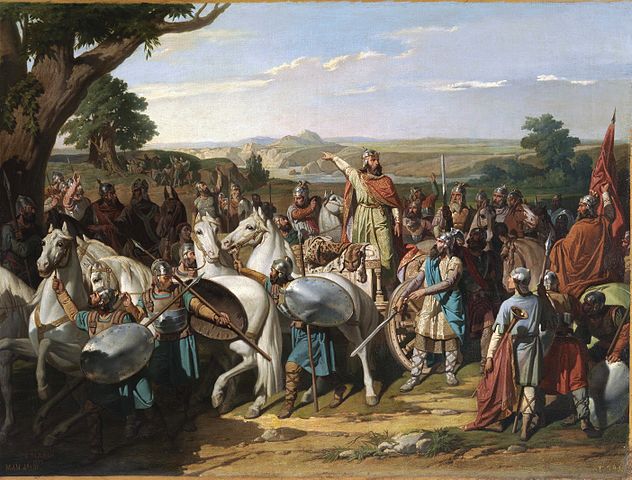
Historians are largely unsure as to when and where the battle took place. Several chronicles date the battle to somewhere between the years of 711 and 712 AD. However, recent research has provided a more concrete day of the 25th-26th of July, 712.
Sometime in the months leading up to the battle the Umayyad commander Tariq ibn Ziyad, known in the west as Tarik, managed to land a massive Ummayad army in Southern Spain. According to Berber chronicles, this army consisted of agile cavalry and lightly armored infantry.
The Visigoths on the other hand structured their army after the late Roman Republic. This was a long, densely packed, and heavily armored infantry column that would have been supported by light cavalry and archers.
Normally this would have proven effective against the Berber forces but King Roderic had fragmented the political alliances which made the Visigothic capable of summoning a large and loyal army to defend the kingdom.
We do not have many details surrounding the procession of the battle itself but at some point, the Umayyad army under Tarik managed to encircle the Visigothic army on a battlefield near a large body of water. This information demonstrates that at some point the flanks of King Roderic’s forces either were defeated or abandoned him.
Without any form of support, the battle was over within a day. King Roderic fell to the invading Umayyad army under Tarik. At this point, there was little resistance to stop the organized Umayyad forces from capturing the Visigothic capital. Within a couple of months, Visigothic Spain was no more.
The 2 Reasons Why The Battle of Guadalete Changed History Forever
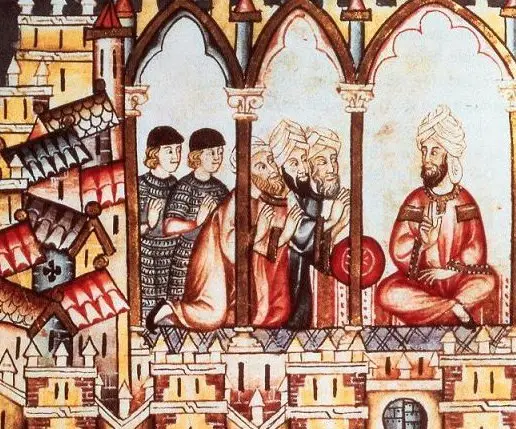
Today the Battle of Guadalete is hardly remembered as a massive event in history. Often it is overshadowed by The Fall of Constantinople, 100 Years’ War, and French Revolution. However, Europe would look nothing like it does today without the Arabic invasion of Visigothic Spain in 712 AD.
Below are the 2 major reasons that the Battle of Guadalete forever changed history.
Reason 1: The Battle of Guadalete Marked the Creation of Al-Andalus and a Transition of Power Over Spain to the Umayyad Dynasty
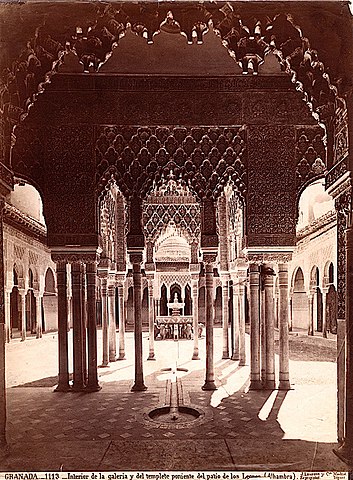
One of the main reasons why the Battle of Guadalete changed history was because it marked the transition of power in Spain from the Visigothic Kingdom to the Umayyad Dynasty.
Why is this important though? Well, we could say that the Umayyad Dynasty was one of the largest empires in the history of mankind but this is not the reason that the Battle of Guadalete is important. Instead, the reason that the battle is important is because of the creation of Al-Andalus.
Al-Andalus was at one point the wealthiest kingdom in all of Europe. This was because of the vast mineral reserves as well as the farmland in Spain. Both of these factors helped in creating a jewel of a kingdom in Western Europe.
The kingdom of Al-Andalus was the gateway through which the Arabic and Latin worlds interacted with each other from the 8th-10th centuries. During this time across the Mediterranean, the Byzantine Empire was engaged in constant internal and external struggle. This significantly impacted the flow of culture, knowledge, and wealth from the East to the West. The best route for this exchange of ideas to go through was Al-Andalus.
Without the Umayyad Conquest over the Visigoths then chances are this exchange of information and wealth would have taken considerably longer. Who knows how this could have impacted our current lives. As such the Battle of Guadalete changed history forever by allowing the rise of the kingdom of Al-Andalus.
Reason 2: The Battle Marked the End of the Dark Ages in Spain.
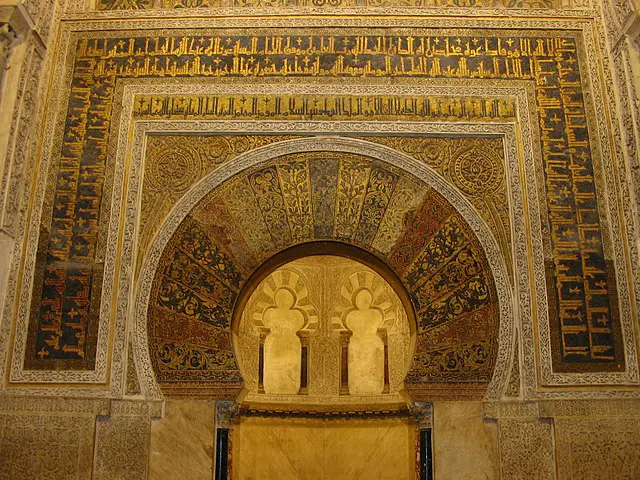
Another major reason why the Battle of Guadalete changed history was by effectively ending the dark ages in Spain.
Historians have to be careful when using the ambiguous term dark ages. Typically this term has been applied to the time period of the 5th-9th centuries in Medieval Europe. During this time the spread of knowledge significantly slowed down as the Roman Empire crumbled and left a segmented Europe ruled by different ‘barbarian’ kingdoms.
This was no different for the Visigothic Kingdom in Spain. The Visigoths continued the same knowledge and traditions that they had inherited from the Roman Empire nearly 300 years before. Outside influence on this Visigothic culture and technology was highly limited.
This forever changed with the Battle of Guadalete in 712 AD. Now with the creation of the kingdom of Al-Andalus, there was a gateway by which culture and knowledge could be transmitted between the Arabic world and the European one.
From the 8th century up until the 10th Al-Andalus became the cultural, scientific, and philosophical center of medieval Europe. This was because ancient Arabic and Greek knowledge that was lost during the collapse of the Roman Empire made its way to Al-Andalus from libraries across the Arabic world.
Because of this Al-Andalus became the center of learning in the medieval world. Scholars from all over Europe, Asia, and Africa came to study in the extensive libraries of the capital city of Cordoba. As a result of Al-Andalus becoming the center for learning the population of Cordoba rose to around 450,000-500,000 by the 10th century thanks to advances in crop irrigation.
The Battle of Guadalete helped to jumpstart the Islamic Golden Age.
Simply put, the reason that the Battle of Guadalete was a turning point in history because it allowed for the creation of a new cultural and scientific hub in Europe. From this came several large inventions that still impact us today!
Common Questions About The Battle of Guadalete
Here are some common questions I get asked about the Battle of Guadalete. If you have any that do not appear on the list below then send me an email and I will include them.
Question 1: When and Where Did The Battle of Guadalete Take Place?
This is one of the great mysteries of history. Nobody knows where and when the Battle of Guadalete really took place.
We do know that it was a massive battle that involved anywhere from 20,000 soldiers to 400,000 somewhere in the southern tip of modern-day Spain. This battle was fought over a couple of days and have several small skirmishes before the final battle.
We also know that the battlefield was located near a large body of water that was not the Atlantic or Mediterranean oceans. Modern historians theorize that this could mean either the La Janda lake, Guadalete River, or Barbate River.
Question 2: What Were the Names of The Leaders of The Armies?
The Visigothic Army was under the command of King Roderic. We know very little about this Visigothic King besides the fact that he ruled for less than one year and was defeated at the Battle of Guadalete in 711/712 AD.
The Umayyad Army was commanded by the Berber commander named Ṭāriq ibn Ziyād, known in Latin as Tarik. Tarik was known to be an effective commander who after the Battle of Guadalete split his army into 4 sections and had them conquer all Visigothic land in Spain. We know very little about him outside of this.
Question 3: Is It True That the Reason the Visigoths Lost the Battle of Guadalete Was Because Roderic Was Betrayed?
We don’t know. We do know that King Roderic came to power after the death of the last Visigothic King through a palace coup. However, we don’t know if Roderic failed to unite the Visigothic tribes in his couple of months of rule.
The historical rumor is that during the battle King Roderic was betrayed by the sons of the former Visigothic king Wittiza. However, the only source we have for this information comes from a highly biased chronicle (Mozarabic Chronicle) written by an unnamed author 40 years after the battle.
Conclusion
There you have it; the 2 major reasons that the Battle of Guadalete changed history.
Today many people are not aware of this pivotal battle in western history. This is because it is hard to teach since we have so few primary sources available to us. Any prospective graduate student looking for a good research project can find substantial amounts of research opportunities surrounding this battle.
Here at The History Ace, I strive to publish the best history articles on the internet. If you enjoyed this article then consider subscribing to the free newsletter and sharing it around the web.
Further, you can check out some of the other articles below.
-
Battle of Guadalete: 2 Reasons It Changed History

Why and how did the Battle of Guadalete change history forever? Well here are 2 major reasons why everyone should know of it.
